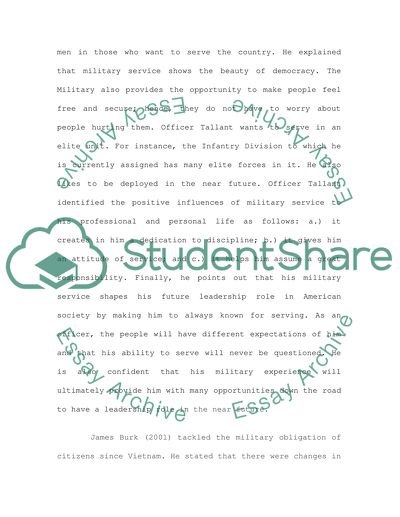Cite this document
(Mandatory Military Service Literature review Example | Topics and Well Written Essays - 2250 words, n.d.)
Mandatory Military Service Literature review Example | Topics and Well Written Essays - 2250 words. https://studentshare.org/military/1541060-argumentative-research-paper-mandatory-military-service-for-all-males-18-in-the-us
Mandatory Military Service Literature review Example | Topics and Well Written Essays - 2250 words. https://studentshare.org/military/1541060-argumentative-research-paper-mandatory-military-service-for-all-males-18-in-the-us
(Mandatory Military Service Literature Review Example | Topics and Well Written Essays - 2250 Words)
Mandatory Military Service Literature Review Example | Topics and Well Written Essays - 2250 Words. https://studentshare.org/military/1541060-argumentative-research-paper-mandatory-military-service-for-all-males-18-in-the-us.
Mandatory Military Service Literature Review Example | Topics and Well Written Essays - 2250 Words. https://studentshare.org/military/1541060-argumentative-research-paper-mandatory-military-service-for-all-males-18-in-the-us.
“Mandatory Military Service Literature Review Example | Topics and Well Written Essays - 2250 Words”. https://studentshare.org/military/1541060-argumentative-research-paper-mandatory-military-service-for-all-males-18-in-the-us.


